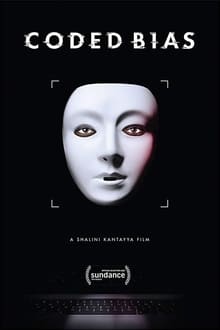
Photo by Clay Banks on Unsplash
The Role of Inclusive Communities in Promoting Open Source and Diversity
Introduction
Since my childhood, I have always believed that teamwork makes the dream work. Whether it was completing school projects or working on personal hobbies, I thrived in collaborative environments. But as a programmer from a small town, finding like-minded individuals with similar goals has proven to be a challenging feat. That was until I stumbled upon online open-source communities.
Through these communities, I have witnessed the power of collective efforts from developers around the world resulting in groundbreaking innovations that benefit everyone. However, my love for the open-source community doesn't blind me to the challenges it faces in terms of diversity and inclusivity. With this article, I want to shed light on the importance of building inclusive communities in open-source and provide some best practices for achieving diversity. Let's work together to create a more welcoming and inclusive environment for all developers to thrive in!
What is Diversity in Open Source?
Diversity in open source refers to the inclusion of people from different backgrounds, cultures, and experiences in the development and maintenance of open-source software. It encompasses differences in gender, race, ethnicity, age, religion, sexual orientation, and more. The goal of diversity is to create a community where everyone feels welcome, valued, and empowered to contribute their unique perspectives and skills.
The Benefits of Diversity in Open Source
As you may already know, diversity plays a crucial role in the success of any organization, and the open-source community is no exception. In fact, the benefits of diversity in open source are so significant that I want to recommend a Netflix documentary called Coded Bias to my readers. This eye-opening film explores the extreme consequences of non-inclusivity in the tech industry and underscores the importance of embracing diversity in all aspects of software development.

There are many benefits to having a diverse open-source community. First and foremost, diversity leads to better software. When you have a diverse group of developers working on a project, you are more likely to get a variety of ideas and approaches to problem-solving. This can result in more creative solutions and better outcomes.
Diversity also helps to ensure that open-source software reflects the needs and priorities of a wider range of users. When developers from different backgrounds and cultures work together, they are more likely to create software that is accessible and useful to a diverse group of people.
Finally, diversity in open source can lead to a stronger community. When people from different backgrounds come together to work on a project, they have the opportunity to learn from each other and build relationships that go beyond just the code. This can lead to a more collaborative and supportive environment where everyone feels included and valued.
The Challenges of Achieving Diversity in Open Source
While the benefits of diversity are clear, achieving it in open source can be challenging. One of the biggest barriers to diversity is the lack of diversity in the tech industry as a whole. Women and people of color are underrepresented in tech, which means that they are also underrepresented in open source.
Another challenge is the issue of unconscious bias. This refers to the subconscious beliefs and attitudes that people hold about certain groups of people. Even well-intentioned developers can be influenced by unconscious bias, which can lead to exclusionary behavior and practices. And again, while I'm talking about these challenges of achieving diversity in open-source, the first thing that appears to my mind is the documentary 'Coded Bias' which I have mentioned earlier.
Finally, open source can be an intimidating and unwelcoming environment for newcomers. The culture of open source can be very technical and jargon-heavy, which can make it difficult for beginners to get started. Additionally, the lack of diversity in the community can make it hard for people who don't fit the typical mold of an open-source developer to feel like they belong.
Best Practices for Building Inclusive Open Source Communities
Despite the challenges, there are many best practices that open-source communities can adopt to become more inclusive. Here are a few:
1. Be intentional about diversity.
Building a diverse community requires intentional effort. This means actively seeking out and welcoming contributions from people from different backgrounds and experiences. It also means being aware of and addressing any unconscious biases that may be present in the community.
2. Create a welcoming environment.
It's important to create an environment where everyone feels welcome and valued. This can include using inclusive language, providing resources for beginners, and creating spaces where people can ask questions without fear of judgment.
3. Provide mentorship and support.
Newcomers to open source can benefit greatly from mentorship and support. Providing resources and opportunities for mentorship can help to onboard new contributors and ensure that they have a positive experience.
4. Be transparent and communicative.
Transparency and clear communication are key to building trust in a community. This means being open about decision-making processes and providing clear guidelines for contributions.
5. Celebrate diversity.
Finally, it's essential to celebrate and highlight the contributions of people from diverse backgrounds. This can help to create a culture where diversity is not just accepted, but celebrated.
Conclusion
It's truly remarkable how diversity has become a key factor in the success of open source. Building an inclusive environment not only leads to the creation of exceptional software but also allows for a wider audience to be catered to, creating more connected and supportive communities. The effort put in to promote diversity is well worth it, and there are a plethora of effective strategies that communities can adopt. It's heartening to see every open-source developer's dedication to building a more inclusive and diverse community, and we're certain that their efforts will bring about a significant change.
